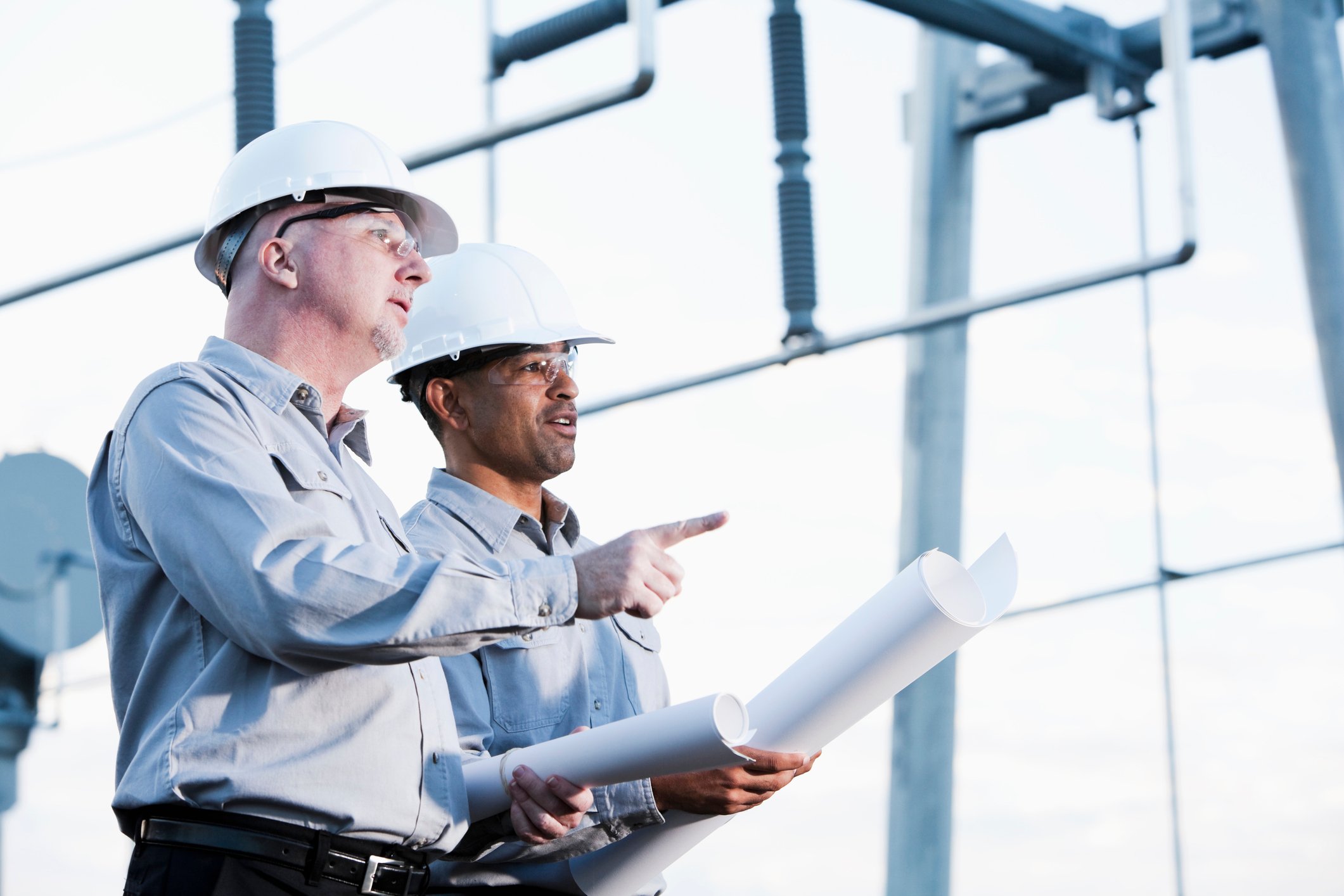A heating, ventilation, and air conditioning (HVAC) engineer designs, installs, and maintains heating, ventilation, and air conditioning engineering systems in buildings. These can include HVAC systems in offices, stores, factories, transportation facilities such as airports and train stations, schools, hospitals, and homes.
HVAC engineers design HVAC systems that meet the specific requirements of the building type. This includes calculating heat load and airflow requirements, selecting appropriate equipment and components, and designing ductwork and piping systems. They must select appropriate equipment such as boilers, chillers, air handlers, and other components for those particular HVAC systems. They do this by evaluating equipment specifications, performance, and efficiency, and making recommendations based on the needs and budget available.
HVAC engineers also oversee the installation of HVAC systems to ensure that they are installed according to design specifications, code requirements, and industry standards. They work with contractors, technicians, and other professionals to ensure that the installation is done correctly. After installation, HVAC engineers perform testing and commissioning to ensure that the system is operating correctly and efficiently. They perform functional tests, airflow tests, and other measurements to verify that the system is performing according to design specifications.
HVAC engineers are furthermore responsible for maintaining and troubleshooting HVAC systems. They perform regular maintenance to ensure that the system is operating efficiently and identify and troubleshoot issues that arise, such as equipment failures, refrigerant leaks, or airflow problems.
In designing and maintaining HVAC systems that are energy-efficient and cost-effective, they must be aware of energy-saving measures too. Such measures include upgrading equipment, optimizing system controls, or implementing renewable energy systems.
With the continued growth in building worldwide, HVAC engineers are always in demand. They are typically employed by engineering, construction and real estate companies, or other service-providing companies who offer HVAC solutions.
Apply now for a job as a HVAC engineer!
Techniker Planung und Projektierung HVAC/HKL (w/m/d)
Location: Neubrandenburg
Branche: Machine & Plant Design
Expertise: Research & Development
Experience: 2 years
In Ihrer Position dreht sich alles rund um die Planung und Projektierung von Lüftungstechnik. Dabei berechnen Sie den Luftbedarf sowie deren Konditionierung. Zudem erstellen Sie Konstruktionen mittels RUKON. Unter Einhaltung sicherheitsrelevanter Vorgaben planen Sie Entrauchungsanlagen. Sie prüfen Unterlagen der Leistungsphasen 3 und 5 auf technische Mängel und Plausibilität. Je nach Erfahrungsstand übernehmen Sie die fachliche sowie disziplinarische Führung. Ihr Kommunikationsgeschick nutzen Sie für die erfolgreiche Zusammenarbeit mit Bauherren, Fachplanern und Architekten.
Construction Superintendent (Mechanical/HVAC)
Location: Doha
Branche: Conventional Energy
Expertise: Planning & Testing
Experience: 5 years
Review, audit and recommend for approval of mechanical and HVAC for the Topsides project scopes and review and approve mechanical and HVAC contractor procedures, construction sequence/logic, work plan/procedures, pre-task planning and methods statement to ensure effective work execution and safety.Review and monitor project Mechanical & HVAC design, including Engineering / Site Queries, Field Design Changes, Deviation Requests, Non-Conformance Reports and Contractor design change or deviations from company directives ensuring compliance with management of change procedures.Participate as required in incident /accident investigation and prevention of recurrence.Promotes safety awareness and safe performance among project team members, including consultants and contractor personnel.Provide Company representation in monitoring and coordinating the site Mechanical & HVAC equipment activities of Contractor, vendor and its sub-contractors for all Mechanical & HVAC equipment.Report on the construction activities, progress, areas of concern and mitigating actions. Prepare for and participate in construction related meetings.Provide guidance and timely review on Contractor’s Mechanical & HVAC engineering designs and processes verifying fitness for purpose and compliance with contract requirements including codes and standards and ensure PMT or other technical support is available to address any gaps.Coordinate Contractor, vendor’s work activities, and interface coordination with the activities of Third Parties. Review of method statements, JSAs and other documents to ensure safe and proper construction and PMC by Contractor.Ensure construction work carried out in accordance with Qatargas rules, regulations, standards and permit to work procedures as applicable.Support Head of Construction in delivery of the Engineering and Process design of Mechanical equipment, HVAC Duct & equipment and coordinate the field installation of the Mechanical & HVAC duct/equipment, providing start-up and commissioning support.Promote inter-departmental communications and encourage teamwork through managing the Mechanical & HVAC engineering interface between Engineering, Operations, and Startup Team.Provide technical support and advice to project procurement and construction activities and support Head of construction in monitoring the Contractor progress on delivery of the required documents in the Mechanical/HVAC engineering discipline. Review the construction sequence/logic, work plan/procedures, pre-task planning and methods statement to ensure effective work execution and safetyReports progress, performance, initiatives, issues and challenges to Head of construction.Provides input to and review development of contractor’s detailed plans to complete the work.Also report and record potential change order request to assist in claims avoidance.Review work and inspection results to ensure compliance with Contract requirements.Interface and coordinate with Project Field Engineering and QC Sections. Monitor and ensure the correction of non-conformance report items and other issues supporting QA/QC compliance.Monitor site material handling and preservation to facilitate construction progress and quality of materials.
Control & Protection Engineer for HVDC Studies - proaktiv (w/m/d)
Location: Ingolstadt
Branche: Conventional Energy
Expertise: Planning & Testing
Experience: 2 years
Entwicklung und Implementierung von Steuerungssystemen für HVDC-Anlagen zur effizienten und sicheren Energieübertragung Gestaltung und Optimierung von Schutzstrategien, um die Systemstabilität und -sicherheit in verschiedenen Betriebsszenarien zu gewährleisten Durchführung von Simulationen und Leistungsanalysen zur Bewertung der Effizienz, Stabilität und Zuverlässigkeit von HVDC-Systemen Sicherstellung der nahtlosen Kompatibilität von HVDC-Anlagen mit bestehenden AC-Netzen, inklusive Netzintegration und -stabilität Erstellung technischer Dokumentationen, Berichte und Analysen zur Unterstützung von Projektentwicklungen und zur Sicherstellung der Transparenz Enge Zusammenarbeit mit interdisziplinären Ingenieurteams, um technische Lösungen abzustimmen und die Projekte erfolgreich umzusetzen
Betriebsingenieur Verfahrenstechnik (w/m/d)
Location: Wuppertal
Branche: Life Sciences
Expertise: Production & Manufacturing
Experience: 2 years
Instandhaltung und Gewährleistung der Verfügbarkeit der TGA-Anlagen Leitung der PCT-/MST-Instandhaltung Abstimmung und Kommunikation auf Werksebene Sicherstellung der Einhaltung lokaler technischer und rechtlicher Vorschriften sowie der Unternehmensrichtlinien im Bereich TGA Sicherstellung der Einheitlichkeit der technischen Standards und technischen Abläufe im Werk
Senior Mechanical Engineer
Location: Burnaby
Branche: Mining
Expertise: Planning & Testing
Experience: 4 years
Lead conceptual design and detailed cost estimating for mechanical system upgrades. Develop business cases and prepare comprehensive client reports. Conduct schematic and detailed design of HVAC, plumbing, and fire suppression systems. Prepare technical specifications, drawings, and tender documentation for procurement and construction. Oversee construction administration, including field reviews and ensuring design compliance. Manage all phases of project delivery, including resource planning, budgeting, scope and schedule management, and risk mitigation. Supervise and mentor junior team members, providing technical and project guidance. Prepare technical responses to Requests for Proposals (RFPs). Promote engineering services to current and prospective clients. Potentially lead or contribute to the development of specialized service areas.
Common HVAC engineer responsibilities
An HVAC engineer is responsible for performing a range of tasks. Responsibilities may include:
- Conducting research on new technologies to develop efficient HVAC designs;
- Providing technical support to other engineers on projects or issues related to HVAC;
- Calculating, designing, constructing, and maintaining heating, ventilation, and air conditioning for residential, public, and commercial buildings;
- Analyzing building plans to determine the HVAC unit number for each building type and room or floor of the building;
- Evaluating customer needs and recommending solutions in line with them;
- Determining the best place for installing HVAC equipment in a building;
- Coordinating with contractors to ensure new installations meet building codes and regulations on time;
- Working with contractors to ensure existing HVAC systems are working properly;
- Inspecting chillers, boilers, air handling units, and refrigeration equipment;
- Traveling to sites to design, install, maintain HVAC systems;
Ensuring the safety of everyone at all times.
Qualifications for HVAC engineers
HVAC engineers should possess at least a Bachelor's degree in HVAC Engineering, Mechanical Engineering, or a related field. In some countries, a professional certification may be required.
Additional supporting skills and experience include:
- Some prior experience with heating, ventilation, and air conditioning, building design, or mechanical-electrical systems, including from an internship or apprenticeship is recommended;
- Strong understanding of buildings and construction;
- Ability to use diverse tools and machines;
- Strong team collaboration and customer service skills;
- Logical thinking skills and attention to detail.



